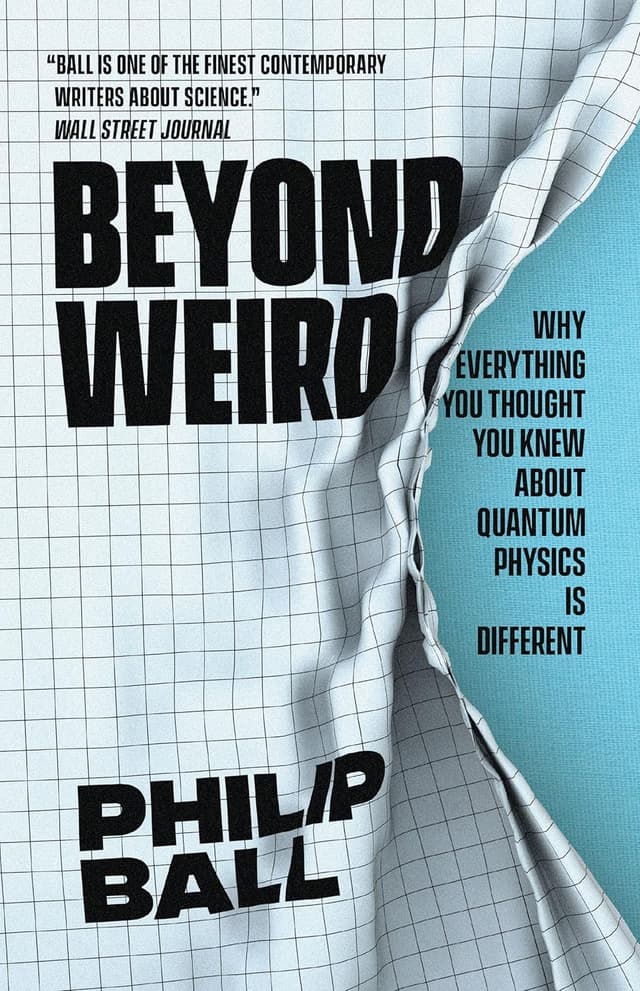Noah Brier | February 7, 2020
Why is this interesting? - The Medium is the Message Edition
On language, thought, and the enduring legacy of Marshall McLuhan
Recommended Products

Walter Ong's book that dives into the specific impacts of language on society, exploring how writing has transformed human consciousness more than any other technology.

Kyle Chayka's book on minimalism, focusing on the challenge of using words to describe minimalism and how writing about emptiness documents presence, highlighting the intricate relationship between language and the concept of less.

Philip Ball's book is a survey of the current state of understanding in quantum physics and a thesis on why grasping quantum concepts is challenging. It discusses how language and our existing logic struggle to grasp the realities of quantum mechanics.
Noah here. As I’ve likely mentioned in the past I’m a big Marshall McLuhan fan. His decree that “the medium is the message” is something that I use constantly to try to unravel the relationship between technology and culture. The point he was making is that a medium (by which he really means anything that transmits information—including a lightbulb) carries with it a message that has a far greater impact than the content it carries. To this end, one of my favorite McLuhan quotes (which you may remember from The Oscar Debate Edition) is “... the ‘content’ of a medium is like the juicy piece of meat carried by the burglar to distract the watchdog of the mind.”

The written word plays a central role in explaining the concepts for McLuhan. One of his former students, Walter Ong, went on to write Orality and Literacy, which dove into the specific impacts of language on society. He believed writing had a larger effect than any other technology on how we think:
A deeper understanding of pristine or primary orality enables us better to understand the new world of writing, what it truly is, and what functionally literate human beings really are: beings whose thought processes do not grow out of simply natural powers but out of these powers as structured, directly or indirectly, by the technology of writing. … More than any other single invention, writing has transformed human consciousness.
Why is this interesting?
It’s not just the language shapes our consciousness, as Ong points out, but it also shapes—and sometimes stands in the way of—our ability to understand. This is well-articulated in a quote from this excellent Nautilus piece on the crisis in neuroscience. In explaining the challenges in understanding the brain, Jeff Lichtman, a professor of molecular and cellular biology at Harvard, explains:
“Language itself is a fundamentally linear process, where one idea leads to the next. But if the thing you’re trying to describe has a million things happening simultaneously, language is not the right tool. It’s like understanding the stock market. The best way to make money on the stock market is probably not by understanding the fundamental concepts of economy. It’s by understanding how to utilize this data to know what to buy and when to buy it. That may have nothing to do with economics but with data and how data is used.”
But it’s not just the brain. One of my favorite books of the last few years is Philip Ball’s Beyond Weird: Why Everything You Thought You Knew about Quantum Physics Is Different. It’s ostensibly a survey of the current state of understanding in quantum physics, but it’s also a thesis on why we have so much trouble grasping quantum concepts. Once again, language is the culprit:
When it’s said that quantum mechanics is ‘weird’, or that nobody understands it, the image tends to invite the analogy of a peculiar person whose behaviour and motives defy obvious explanation. But this is too glib. It’s not so much understanding or even intuition that quantum mechanics defies, but our sense of logic itself. Sure, it’s hard to intuit what it means for objects to travel along two paths at once, or to have their properties partly situated some place other than the object itself, and so on. But these are just attempts to express in everyday words a state of affairs that defeats the capabilities of language. Our language is designed to reflect the logic we’re familiar with, but that logic won’t work for quantum mechanics.
Finally, as if to prove it extends to areas outside science, Kyle Chayka points out the challenge of using words to describe minimalism in his new book The Longing for Less: Living with Minimalism. I haven’t read it yet (currently working on Say Nothing per CJN’s recommendation), but I was taken by this quote I saw pop up on Twitter: “Writing about emptiness is difficult because words document presence. As soon as you point to something in writing, it’s there, even if what you point to is empty floor.” As usual, Mcluhan was ahead of his time. (NRB)
Chart of the Day:
Price changes in textbooks vs recreational books over the last 15 years. Wild. For what it’s worth, textbooks took a small dip in prices last year, but we’ll have to see if it stays that way. (NRB)

Quick Links:
Concrete jungle: why brutalist architecture is back in style (NRB)
On hidden hearing loss (CJN)
Friend of WITI Kevin Allison on the resonance of Alvin Toffler’s 1970 book Future Shock (NRB)
Thanks for reading,
Noah (NRB) & Colin (CJN)
Why is this interesting? is a daily email from Noah Brier & Colin Nagy (and friends!) about interesting things. If you’ve enjoyed this edition, please consider forwarding it to a friend. If you’re reading it for the first time, consider subscribing (it’s free!).